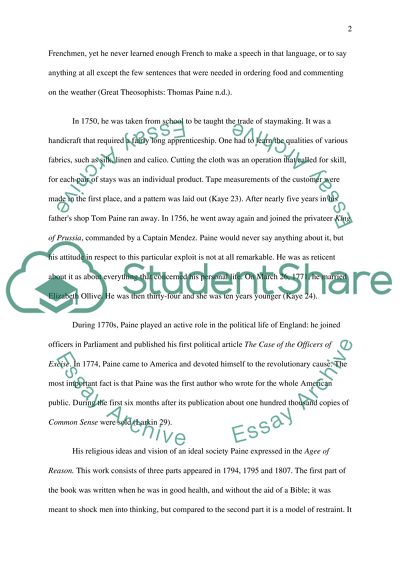Cite this document
(“Thomas Paine on Religion Essay Example | Topics and Well Written Essays - 2000 words”, n.d.)
Retrieved from https://studentshare.org/miscellaneous/1519903-thomas-paine-on-religion
Retrieved from https://studentshare.org/miscellaneous/1519903-thomas-paine-on-religion
(Thomas Paine on Religion Essay Example | Topics and Well Written Essays - 2000 Words)
https://studentshare.org/miscellaneous/1519903-thomas-paine-on-religion.
https://studentshare.org/miscellaneous/1519903-thomas-paine-on-religion.
“Thomas Paine on Religion Essay Example | Topics and Well Written Essays - 2000 Words”, n.d. https://studentshare.org/miscellaneous/1519903-thomas-paine-on-religion.


